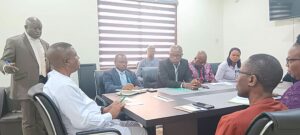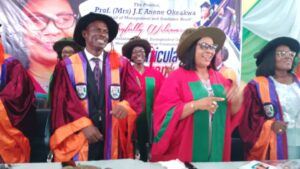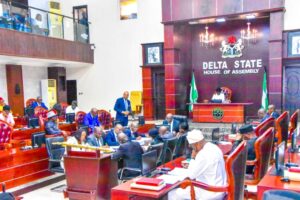OPINION: THE BROUHAHA SURROUNDING THE $9BN AWARD AGAINST NIGERIA – SOME PERTINENT QUESTIONS THAT NEEDS TO BE CONSIDERED
By Zik Gbemre
In our quest of looking for answers to fully understand, and try to wrap our heads on the subject issue that has got many stakeholders talking in the last few weeks, we got some explanation by an oil and gas expert – Alhaji Abdullahi Bukar, who while looking for answers on 3 things to explain what is happening, gave a different narrative, as to the real issues that needs to be looked into.
Recall that a British commercial court had imposed $9Billion damages or fine against the Federal Government of Nigeria for violation of contract obligations with an Irish Engineering and Project Management Company – Process and Industrial Developments Limited (P&ID). Though, the said award was made as far back as July 2015 by an arbitration panel sitting in London, what happened in London recently was a failed legal move by Nigeria to stop the enforcement of that judgment. However, we have asked how on earth did we end up signing an agreement that entitles a company to claim loss of earnings without having invested a kobo? Who was or were the lawyer(s) that drafted the agreement, how did they go about it and how much were they paid? Was it a private legal practitioner or a team of lawyers in the Ministry of Justice? Who reviewed the draft to make inputs? Did the company use its lawyers to produce the agreement and simply asked the representatives of the Nigerian government to sign? Considering the fact that Nigeria has produced enough quality legal practitioners and scholars of national, regional and international repute, professional jurists of the highest learning, character and reputation; to fall for this kind of trap is the worst thing to happen to this country.
It is in that light that the said oil and gas expert, Alhaji Abdullahi Bukar noted the following:
1. Gas Sales Contracts (GPSA) are usually signed between the Gas Supply Asset Operator and the Customer. But in this case, it was signed by others, completely against norm. So, the first question is, why was this done so? This question arises because it has nothing to do with gas supply from the listed OMLs 67 and 123, as the actual suppliers are not party to it. Similarly, MPR has no back to back agreement to secure supply from the Asset Operators. In other words, why was this done differently?
2. GPSAs usually contain a clause limiting damages that can be demanded for breach of agreement. The question here is: Are our Technocrats, Lawyers and Economists so dumb to exclude this?
3. What level of commensurate investment will generate such a whopping profit, and did P&ID make such an investment?
With all of this being put in perspective, we think the whole thing is a scam, which must be fought to a success for Nigeria. Already, the P&ID have started threats in evaluating assets they can take and at the same time indicating possible negotiating points. The whole thing “stinks” and some of our Nigerian lawyers are deep in it, with obvious aim to share the proceeds at the end of the day.
Like we noted in our previous write up on this issue, for us to stop this madness and suspicious scam, the Federal Government needs to have a system of using our best lawyers and jurists to draft and perfect agreements of this nature and to defend our legal disputes. Poor lawyering was responsible for our loss of Bakassi to Cameroon. Again, we did not use our first eleven for that case. And now, this one. Sadly, poor lawyering is caused in Nigeria by tribalism, favoritism, and corruption. There are indeed very vibrant, bright and intelligent lawyers who can research and compile such cases like this, and do very well to protect the interest of the Nigerian Government.
Then again, the UK also has a role to play here. The UK ought to encourage Nigeria on its war against graft, by looking more deeply and intently on this case, instead of looking at it from just the surface. The said UK court was also too quick to issue their judgement on this issue against Nigeria. Let us recall that P&ID had instituted “recognition and enforcement” proceedings in the UK and the US. It won in both jurisdictions and this would allow them to seize (“attach”) Nigeria’s assets in both countries. However, Nigeria filed objections in the UK and the US on the basis of the country’s sovereignty. P&ID asked the US court to dismiss Nigeria’s objection as “frivolous” but the US court has refused to do so, which gives us a ray of hope. But the English court on recently dismissed Nigeria’s objection, which means the award can be enforced in the UK. Hence, the reason we believe the UK, ought to take more time to consider all the issues surrounding this case, rather than being quick to issue judgement against its former colony. Whatever the case may be though, our political leaders should do the needful, by exposing all those trying to gain from this obvious scam, and save the fortunes of Nigeria from their claws.
Zik Gbemre,
September 3, 2019.
We Mobilize Others to Fight for Individual Causes as if Those Were Our Causes




